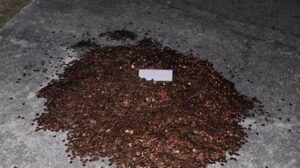 By Gerald L. Maatman, Jr., Jennifer A. Riley, and George J. Schaller
By Gerald L. Maatman, Jr., Jennifer A. Riley, and George J. Schaller
Duane Morris Takeaways: In Su v. 811 Autoworks LLC et al., No. 3:21-CV-00220 (N.D. Ga. June 5, 2023), a federal district court in Georgia entered a consent judgement requiring an employer to pay approximately $40,000 for back wages and liquidated damages to end an FLSA suit filed by the U.S. Department of Labor (DOL) last year. The circumstances of the award are far from typical, and show how context is everything.
For employers facing DOL-initiated lawsuits involving retaliation, overtime, and recordkeeping prohibitions of the FLSA, this decision is illustrative of the potential for liquidated damages for failures to adhere to the FLSA, particularly in disputes over back wages and final wages where retaliation occurs.
Case Background
The DOL filed an FLSA action on behalf of former workers (“Claimants”) of 811 Autoworks LLC d/b/a/ AOK Walker Luxury Autoworks (“AOK”) and AOK’s owner, Miles Walker. The Claimants alleged they were denied pay for final wages and did not receive required overtime pay when they worked over 40 hours in a workweek. In its investigation, the DOL also determined Walker failed to keep adequate and accurate records of employees’ pay rates and work hours in violation of the FLSA’s recordkeeping prohibitions.
Additionally, at least one Claimant, Andreas Flaten, alleged he was retaliated against for requesting his final paycheck where AOK delivered his final $915 paycheck as 91,500 oil covered pennies with an expletive marked pay stub left on the driveway of his residence. Subsequently, the oil covered pennies damaged Flaten’s driveway and took nearly seven hours to remove.
The Court’s Decision
The Court resolved the DOL suit by entering its consent judgment. The consent judgement directed AOK to compensate workers who exceeded 40 hours in a workweek at a rate of “at least one-half times the regular rate at which such employee is employed, unless such employee qualifies for an exemption . . .” Id. at 2. The consent judgment also ordered that AOK must “not threaten or intimidate (verbally or in writing), terminate or threaten to terminate, coerce or attempt to influence behavior, disparage in person or electronically, or retaliate or discriminate against any current and/or former AOK employees based on AOK’s belief that an employee was engaged in protected activity.” Id. at 2-3. The Court further included a definition for “protected activity.” Id. at 3. The consent judgement required AOK “shall not fail to make, keep and preserve adequate and accurate employment records as prescribed by Regulation.” Id. In response to Flaten’s retaliation allegations, the Court sought immediate removal from AOK’s website all photographs and references to Flaten and permanently enjoined AOK from posting photographs or references to Flaten on any other website or social media site. Id.
As to payments, the Court held AOK was “restrained from withholding back wages in the total amount of $19,967.9 plus liquidated damages in the amount of $19,987.09.” Id. at 4. The Court provided a schedule for the payments, where the payments must be delivered to, and noted AOK would be in default for failure to make any payments per the schedule. Id. at 4-5. Finally, the Court required AOK to post this Consent Judgment and immediately post U.S. Department of Labor, Wage and Hour Division Fact Sheet #77A in all conspicuous places in or about its facility. Id. at 6.
Implications For Employers
Employers that are confronted with DOL-initiated litigation involving FLSA prohibitions should, from a practical standpoint, continuously review recordkeeping procedures, overtime policies, and final wage policies to ensure FLSA compliance. Employers should also note that, in response to the alleged retaliation, the Court sought removal of and enjoined the company from referencing the retaliated claimant on its own website and any other website or social media site. And obviously, paying disputed wage by dumping a truckload of oil-covered pennies on the driveway of a worker is ill-advised.
